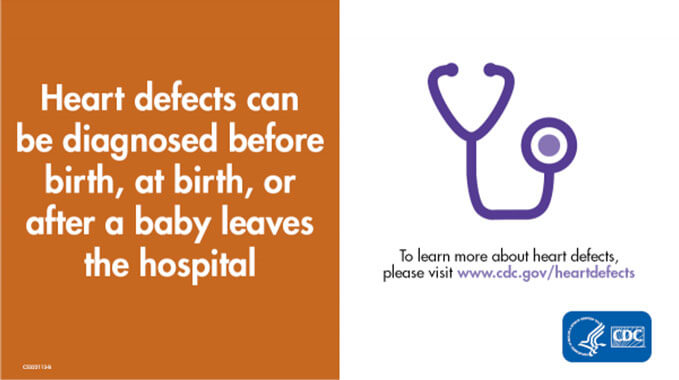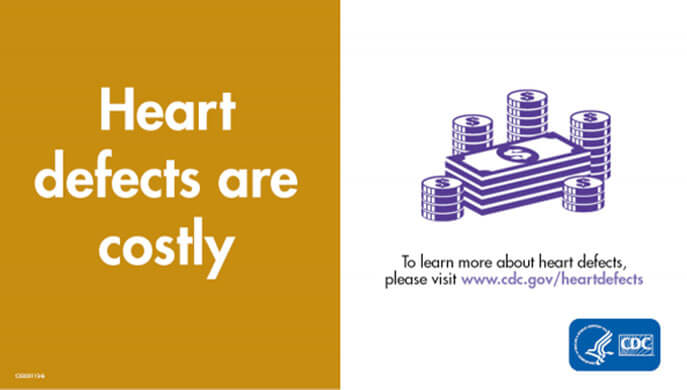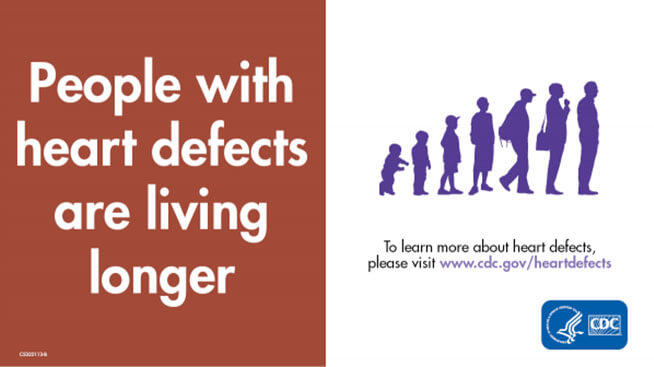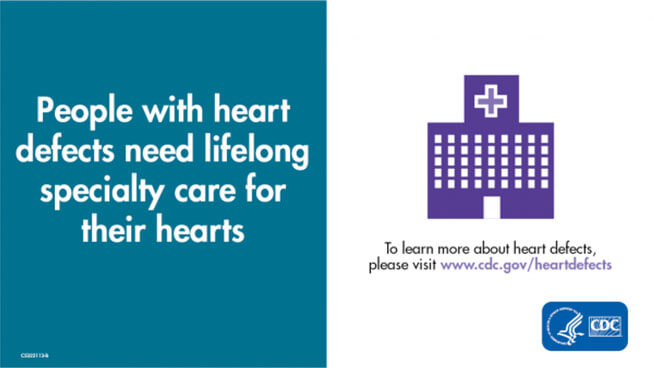
Mega Doctor News
CDC – Congenital heart defects are present at birth and can affect the structure of a person’s heart and its ability to work properly. As medical care and treatment have advanced, people with heart defects are living longer and healthier lives, many into adulthood. Read our five things to know about heart defects.
Heart defects are common.

Heart defects are the most common type of birth defect, affecting nearly 1% of births – or about 40,000 births – per year in the United States.1,2 It is estimated that more than two million people in the United States are living with heart defects.3
Heart defects can be diagnosed before birth, at birth, or after a baby leaves the hospital.

Some heart defects can be found during pregnancy by looking at ultrasound pictures of the heart of the developing baby. Other heart defects aren’t detected until birth through newborn screening, or later in life, during childhood or adulthood. Screening newborns for heart defects allows them to be treated early and may prevent other health problems or early death. A CDC study found that, as of 2018, all 50 states and Washington, D.C. have newborn screening programs that test for critical congenital heart defects.
Heart defects are costly.

In the United States, hospital costs can exceed $6 billion a year to care for people living with heart defects. Families of children with heart problems who have special healthcare needs may experience high out-of-pocket medical expenses, impacts on employment, and other financial problems. Although costs involved in living with a heart defect are often unpredictable, planning for these expenses as early as possible can help your family stay financially healthy. Ask your healthcare provider for information about any financial assistance programs in your state.
People with heart defects are living longer.

As medical care and treatment have advanced, people with heart defects are living longer and healthier lives. Overall, there are slightly more adults living with CHDs than children. As survival rates have increased, researchers are continuing to look at health issues and needs across the lifespan to help ensure people born with heart defects are getting needed care at every stage of life.
People with heart defects need lifelong specialty care for their hearts.

Even with improved treatments, many people with a heart defect are not cured, even if their heart defect has been repaired. People with a heart defect can develop other health problems over time, depending on their specific heart defect, the number of heart defects they have, and the severity of their heart defect. Transition to adult health care can be tricky for teens and young adults living with a heart defect; they may need to navigate changes in insurance, or transition from a pediatric specialist (whom they may have known all their lives) to an adult specialist. Some may gain responsibility for their own care decisions. It is especially important for people with birth defects and their families to begin planning for this transition during childhood so they can lead healthy, independent lives as adults. Ongoing appropriate medical care for their heart defect will help children and adults live as healthy a life as possible.
References
- Hoffman JL, Kaplan S. The incidence of congenital heart disease. J Am Coll Cardiol.2002;39(12):1890-1900.
- Reller MD, Strickland MJ, Riehle-Colarusso T, Mahle WT, Correa A. Prevalence of congenital heart defects in Atlanta, 1998-2005. J Pediatr.2008;153:807-13.
- Gilboa SM, Devine OJ, Kucik JE, Oster ME, Riehle-Colarusso T, Nembhard WN, Xu P, Correa A, Jenkins K, Marelli AJ. Congenital heart defects in the United States: estimating the magnitude of the affected population in 2010. Circulation. 2016;134(2):101-9.









